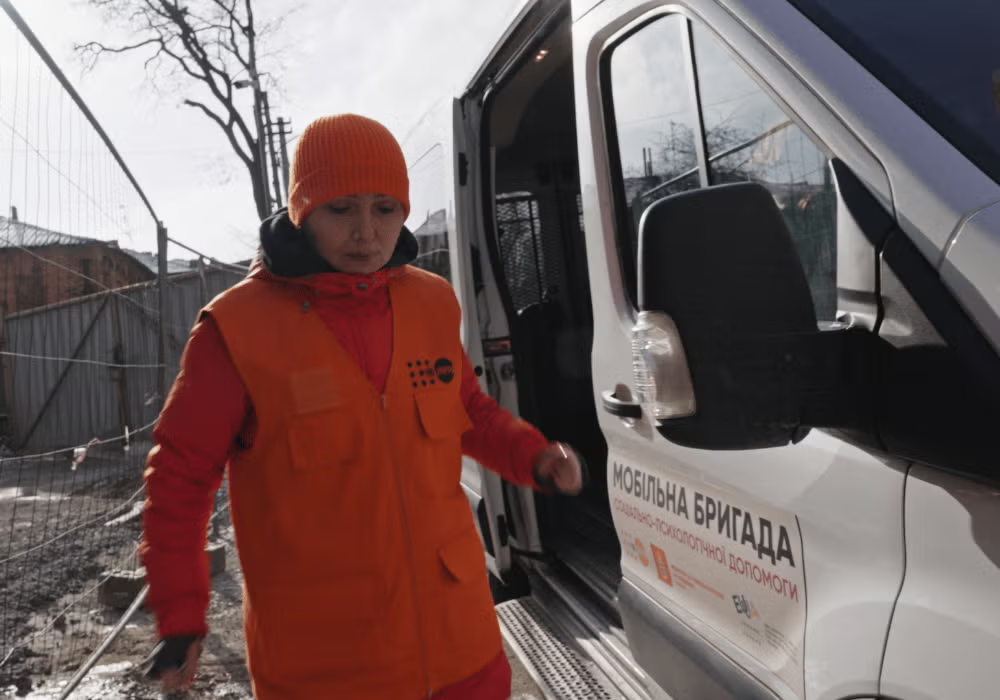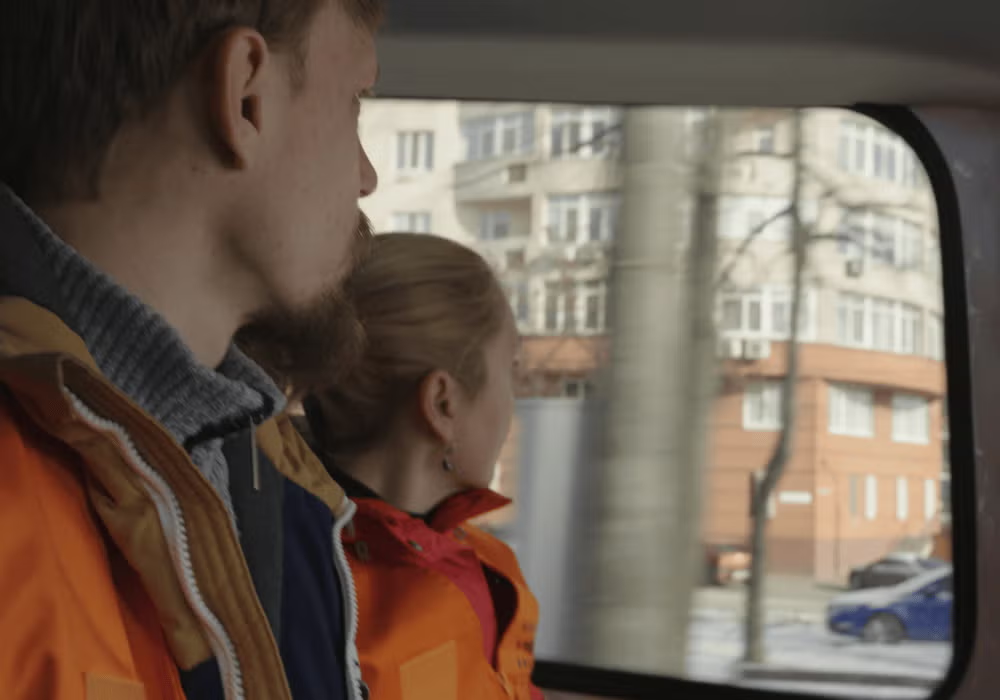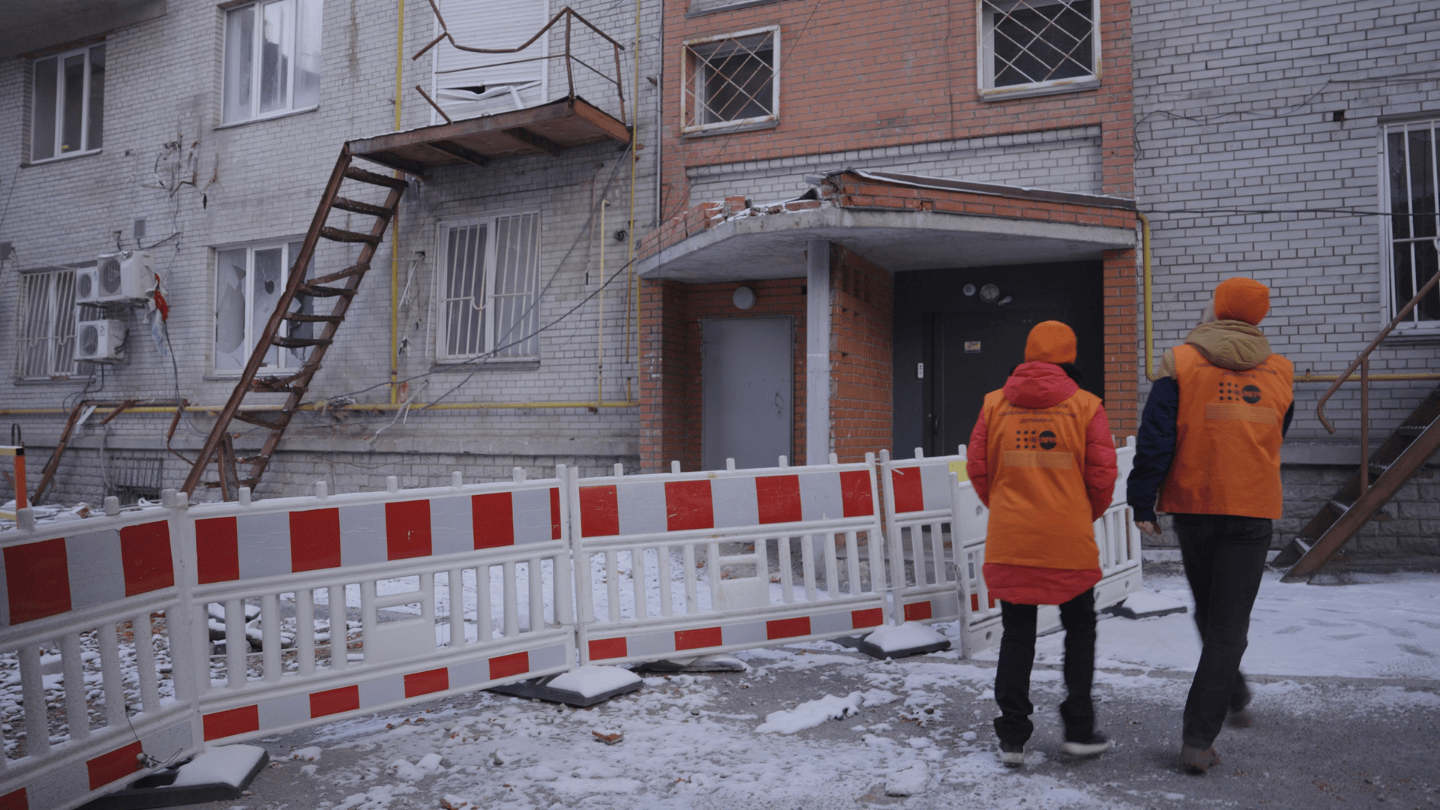DNIPRO, Ukraine – A young mother stepped off the train in the central Ukrainian city of Dnipro, holding a small bag and guiding her five children with her other arm. She had fled the Zaporizhzhia region due to the war, but she was also fleeing violence from her partner – a man who once beat her so severely she suffered a miscarriage.
Unsure of her next steps, she tried the phone number for a mobile psychosocial support team operated by UNFPA, the United Nations sexual and reproductive health agency.
“We met her at the train station and arranged a safe place for her children,” said Tetiana, a psychologist with the team since 2022. “We also organized a medical escort because she needed urgent attention, and she worked with lawyers on her documents and referrals.”
One of 87 UNFPA psychosocial support teams, Tetiana’s unit is on-hand for emergency interventions and can refer survivors for longer-term assistance, job training and access to legal aid. These resources remain critical for survivors of abuse long after the initial danger has passed – especially in a country where three years of war have caused widespread trauma and deep psychological distress.

Addressing high mental health needs
Since Russia’s full-scale invasion, reports of intimate partner violence, domestic abuse, sexual violence and other forms of gender-based violence have surged more than threefold in Ukraine. An estimated 2.4 million people – mostly women and girls – are in urgent need of gender-based violence prevention and response services.
“Even after finding some physical safety in Dnipro, many struggle with lingering panic attacks, nightmares and depressive symptoms,” Tetiana said, explaining how the psychosocial support the health teams provide is life saving.
Almost two thirds of households in Ukraine report dealing with some form of anxiety, depression or extreme stress, thwarting people’s ability to find work or care for family members. Financial hardship, mass job losses, deaths of loved ones and fears of future attacks are only intensifying their distress. Without proper counselling and care, the cycle of trauma can also be passed down to future generations, risking long-term and wider-spread harm to the community
A front-line response system
Roman joined the team in Dnipro as a social worker in April 2022, arranging coordination with social services and public organizations. “We have built a response system for people’s safety and support,” he said, explaining that they are often the first to respond to cases of gender-based violence, after the police. “We are an ambulance of sorts for gender-based violence incidents.”
These services are vital, especially for women without stable income or housing, as the war has put many at risk of economic exploitation or renewed violence.
“Many people think surviving the initial threat is the end of the story,” added Tetiana. “But the real healing only starts once they are physically safe. Without psychosocial support, it’s difficult for them to recover from trauma or prevent further harm.”

A heavy mental toll on support teams, too
In crisis settings, the risk of violence against women and girls escalates – including conflict-related sexual violence – and the demand for protection and response services spikes. Yet as displaced women often lack social networks to turn to and are stigmatized if they report abuse, the police can request the mobile team’s support on-site to coordinate further interventions, such as safe housing or counselling.
It is a situation fraught with danger, and response workers themselves can come under fire. “When we arrive at the sites of attacks or in cases of violence. We don’t have time to slow down,” explained Roman. “We switch on immediately and start providing services. It’s like our own reactions are on hold. Only later, when we look back and discuss it, do we realize how difficult it actually was.”
Since February 2022, the World Health Organization has confirmed over 2,200 attacks on healthcare facilities, services and personnel in Ukraine by the Russian Federation. Last year, over 300 of these affected medical facilities – a threefold increase on 2023.
While his work is critical, Roman said it takes a toll. “With each shelling, it builds up – one after the other. Depending on the severity of the damage, you feel it differently each time. But for the most part, we stay focused on what must be done, putting our feelings aside on the spot. Then, once the immediate crisis is handled, we turn to our own support networks and process it all.”
Why these services must endure
Since 2022, more than 50 of UNFPA’s mobile psychosocial teams have been funded by the US Government, and play an indispensable role in helping Ukraine’s most vulnerable. “The city services function, but they lack the same impact and reach. That’s why the mobile teams are essential, especially in times of war, as we navigate the wave of displaced people,” said Tetiana.
Women are fundamental to the resilience of Ukraine’s families, workforce and larger community, but they have endured immense suffering over years of conflict. Ensuring they are supported throughout their personal recovery will be crucial to safeguarding Ukraine’s long-term recovery.
Yet with uncertainty now surrounding funding for humanitarian work around the world, the continuity of this vital work is under threat. Essential health services to prevent and respond to gender-based violence, support to women-led organizations, and programmes promoting women’s economic empowerment are all at risk of closure – gravely endangering the safety and well-being of millions of people.


